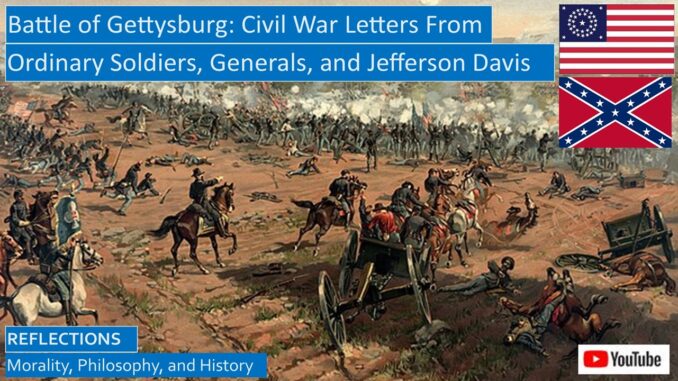
What did the ordinary soldiers and generals tell their loved ones when they wrote home before and after the Battle of Gettysburg that turned the course of the Civil War? How did they remember the carnage of the Civil War’s bloodiest battle?
We reflect both on the letters of General Pickett and ordinary soldiers writing home and the memoirs of General James Longstreet, a close associate of Robert E Lee during the war, describing the bloody battles of Gettysburg, and the correspondence between Robert E Lee and Confederate President Jefferson Davis after the battle.
YouTube video for this reflection: https://youtu.be/ibTm3l-C8VQ
For a broad overview of the Civil War, please view our video of the Civil War Struggle Through Paintings.
Civil War Struggle Through Paintings
http://www.seekingvirtueandwisdom.com/civil-war-struggle-through-paintings/
https://youtu.be/2hoBOSOBUP8
ROBERT E LEE’S DECISION TO INVADE PENNSYLVANIA
In May 1864, Union General Grant was besieging the Confederate forces in Vicksburg in upper Mississippi. Union forces had already conquered New Orleans and controlled the upper Mississippi River, if the river port of Vicksburg fell, the Union would control the entire Mississippi River, splitting the Confederacy in half. This was part of the Anaconda strategy to ensure Union victory, formulated by General Scott at the beginning of the war.

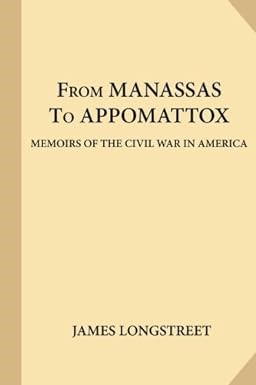
Should some of Robert E Lee’s forces be sent to relieve the Confederate forces in Vicksburg? Robert E Lee told Confederate President Jefferson Davis that he doubted these forces would arrive in time, and that a better strategy would be to invade the Northern state of Pennsylvania, perhaps the Union would need to transfer some troops from the West to counter Lee’s armies. Farms in Virginia and the Shenandoah Valley were being bled dry to feed and horse both armies, now it was Pennsylvania’s turn to be plundered. Robert E Lee had recently won major Confederate victories at the battles of Fredericksburg and Chancellorsville, if he could win another Confederate victory in Pennsylvania, perhaps France or England would support the Confederacy. Everyone remembered that French assistance was key in securing the American victory in the Revolutionary War less than a century earlier.
CONFEDERATE CAVALRY DELAYED
One factor in the recent Confederate victories was the intelligence provided by General Jeb Stuart after his Confederate cavalry rode north, circling around the Union forces. At Gettysburg, when his cavalry forces again rode north, they had the good fortune of capturing a major Union supply wagon train.
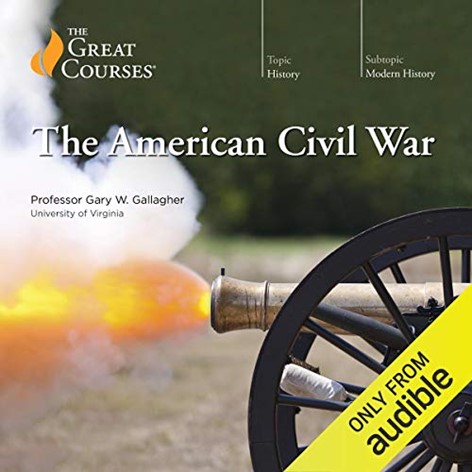
Unfortunately, several factors slowed down JEB Stuart’s Confederate cavalry. This meant they would not meet up with General Lee’s forces before the Battle of Gettysburg began, which meant that Lee was blind about the exact disposition of the Union forces. A battle between the Union and Confederate cavalry at Brandy Station was inconclusive, further delaying the Confederate advance. The federal forces were also moving north, forcing the Confederate cavalry into unfamiliar territory as they circled around. Finally, they had the misfortune of pulling all those wagons from that captured Union supply train, drastically slowing their progress.
SUMMARY OF THE BATTLE OF GETTYSBURG
The two armies made contact on June 30th, and the Confederates won the battle on July 1st even though Robert E Lee could not concentrate and organize his troops as he preferred. Lee continued the battle on the next day with mixed results. The battles on July 3rd were disastrous for the Confederates, as the Confederate forces were slaughtered in the infamous Pickett’s Charge.
Gettysburg was seen as a Union victory as General Meade put up a competent defense. A truce was called on July 4th as both armies gathered their dead and wounded. Afterwards, Robert E Lee’s forces retreated, crossing the Potomac back into Virginia in driving rain some days later. President Lincoln was livid that General Meade did not pursue and finish off Lee’s forces before they crossed the river. Six months later, Ulysses Grant would be named general in charge of all Union forces.[1]
LETTERS AND MEMOIRS BEFORE GETTYSBURG
In a letter to his fiancée in April 1863, Confederate General George Pickett lamented how the South faced long odds in the war: “If the battle is not to the strong, then we may win; but when all our ports are closed and the world is against us, when for us a man killed is a man lost, while Grant may have twenty-five of every nation to replace one of his, it seems that the battle is to the strong.”[2] He is referring to the immigrants, many of them German, serving in the Union army.
Before the battle, the Confederate General James Longstreet remembered they entertained a visiting British Officer, Lieutenant-Colonel Arthur Fremantle, who “was seeking the opportunity to observe the campaign as a non-combatant. As he traveled with us,” he “cheerfully adapted his tastes to the rough ways of Confederate soldiers and proved to be an interesting companion. To avoid the blockade, he came to the Confederacy through Mexico. He gave a graphic account of his travels in Texas after crossing the Rio Grande to the interior in a two-horse hack.”[3]
Confederate General Longstreet was critical of the absence of JEB Stuart’s cavalry in the days leading up to the Battle of Gettysburg. In his memoirs, he remembered: “The raid and the absence of the cavalry at the critical moment were severely criticized through the army and the country.” The war “plans, adopted after deep study, were suddenly given over to gratify the youthful cavalryman’s wish for a nomadic ride.”[4] When he belatedly hooked up with the Confederate forces, JEB Stuart was reprimanded by General Robert E Lee.
CONFEDERATES DESPOILING PENNSYLVANIA FARMS
In June, Confederate General Pender wrote his wife: “Until we crossed the Maryland line, our men behaved as well as troops could, but here,” in Pennsylvania, “it will be hard to restrain them, for they have an idea that they are to indulge in unlicensed plunder. They have done nothing like the Yankees do in our country,” the Confederacy. “They take poultry and hogs, but in most cases pay our” Confederate “money for it. We take everything we want for government use. The people are frightened to death and will do anything we suggest. The rascals have been expecting us and run off most of their stock and goods.”[5]
Confederate Sargeant Royster of Pender’s Division wrote his ma: “Yesterday and the day before our soldiers plundered far and wide, taking butter, milk, apple butter, fruit, chickens, pigs, and horses and everything they could lay their hands on. The people are frightened out of their senses.”
Royster continued: “Yesterday, however, General Lee sent an order around that all stealing and plundering should be punished in each case with death, that officers should be held accountable for the execution of his orders that he made war upon armed men, not upon women and children.” “I heard” “that nine of our soldiers were shot yesterday for taking jewelry from off the persons of the women.”
Confederate quartermasters “were empowered to impress everything necessary for the use of the army. But men are not allowed to have anything but what they buy.”[6] But inflation was so rampant in the South that the Confederate currency was next to worthless and could not buy anything in the North.[7]
Although it was likely not widespread, there was a Confederate brigade that brutally kidnapped hundreds of free black men and women from the countryside of Pennsylvania, selling them into slavery in the Confederate South.[8]
GENERAL LONGSTREET’S MEMOIRS OF THE BATTLES
General Anderson wrote to Longstreet this account of his conversation with Robert E Lee on the first day of the battle: “General Lee was intently listening to the fire of the guns, and very much disturbed and depressed. At length he said, more to himself than to me, ‘I cannot think what has become of Stuart. I ought to have heard from him long before now. He may have met with disaster, but I hope not. In the absence of reports from him, I am in ignorance on what we have in front of us here. It may be the whole Federal army, or it may be only a detachment. If it is the whole Federal force, we must fight a battle here.”
Robert E Lee often consulted with General Longstreet on war strategy. Robert E Lee had previously announced to General Longstreet “that he would not make aggressive battle in the enemy’s country.” But when conferring with Robert E Lee late during the first battle, Longstreet opined, “We could not call the enemy to position better suited to our plans. All we have to do is file around his left and secure good ground between him and his capital.” But unexpectedly, Robert E Lee impatiently “struck the air with his closed hand, saying, ‘If the Union forces are here tomorrow, I will attack them.’”[9]
On the morning before the battle commenced on the second day, General Longstreet remembers, “General Lee was not ready with his plans. He had not heard from his cavalry, nor of the movements of the enemy further than the information from a dispatch captured during the night.” “As soon as it was light enough to see, however, the enemy was found in position on his formidable heights awaiting us.”[10] JEB Stuart joined up with the Confederate forces in the afternoon, he was rebuffed when Robert E Lee gruffly greeted him, “Well, General, you are here at last.”[11]
On the morning of the third day, before the battle commenced, General Longstreet remembered that General Lee “rode over after sunrise and gave his orders. His plan was to assault the enemy’s left center by a column composed of” several Confederate divisions “reinforced by Pickett’s brigades. I thought that it would not do; that the point had been fully tested the day before, by more men, when all were fresh; that the enemy was there looking for us, as we heard him during the night putting up his defenses.”
General Longstreet ominously observed that the column of many thousands of Confederates “would have to march a mile under concentrating battery fire, and a thousand yards under long-range musketry; that the conditions were different from those in the days of Napoleon, when field batteries had a range of six hundred yards and musketry about sixty yards.”[12]
GENERAL PICKETT REMEMBERS THE SLAUGHTER
Confederate General George Pickett wrote a doleful letter to his fiancée on July 4th, 1863, the day after his disastrous Pickett’s Charge. Pickett remembered: “A little before three o’clock I rode up to Old Peter,” his nickname for General James Longstreet, “for orders. I found him like a great lion at bay. I have never seen him so grave and troubled. For several minutes after I had saluted him, he looked at me without speaking. Then, in an agonized voice, the reserve all gone, he said:
‘Pickett, I am being crucified at the thought of the sacrifice of life which this attack will make. I have instructed Alexander to watch the effect of our fire upon the enemy, and when it begins to tell he must take the responsibility and give you your orders, for I cannot.’”
General Pickett continues: “While he was yet speaking, a note was brought to me from General Alexander. After reading it, I handed it to him, asking if I should obey and go forward. He looked at me for a moment, then held out his hand. Presently, clasping his other hand over mine without speaking, he bowed his head upon his breast. I shall never forget the look in his face nor the clasp of his hand when I said: ‘Then, General, I shall lead my Division on.’”
General Pickett remembers, “The stern old war-horse, God bless him, was weeping for his men and, I know, praying that this cup might pass from them. I obeyed the silent assent of his bowed head, an assent given against his own convictions, given in anguish and with reluctance.”
Pickett remembers that fateful charge: “My brave boys were full of hope and confident of victory as I led them forth, forming them in columns of attack,” though “they knew the odds against them, they eagerly offered up their lives on the altar of duty, having absolute faith in their ultimate success.”
“Over on Cemetery Ridge, the Federals beheld a scene never before witnessed on this continent,” “an army forming in line of battle in full view, under their very eyes, charging across a space nearly a mile in length over fields of waving grain and stubble and then a smooth expanse, moving with the steadiness of a dress parade, the pride and glory soon to be crushed by an overwhelming heartbreak.”
Pickett laments, “Well, it is all over now, The battle is lost, and many of us are prisoners, many are dead, many wounded, bleeding, and dying. Your Soldier lives and mourns and but for you, my darling, he would rather, a million times rather, be back there with his dead, to sleep for all time in an unknown grave.”[13]
During Pickett’s Charge, close to nine thousand Confederates were killed, wounded, or captured, which was three-quarters of Pickett’s forces, compared to a loss of fifteen hundred Union casualties. Although General Pickett survived, over half of his field grade officers were lost, and all of his brigade commanders fell. To his credit, Robert E Lee took the blame, riding among his soldiers declaring that the disastrous charge was “all my fault.”[14]
CONFEDERATES RETREAT AFTER TRUCE OF JULY 4th
Two days later, with the Confederates retreating to Virginia, General George Pickett wrote another missive to his fiancée, realizing that this loss was a blow to Confederate independence. “The sacrifice of life on that blood-soaked field on the fatal third day was too awful for the heralding of victory, even for our victorious foe, who I think, believe as we do, that it decided the fate of our cause.”
Pickett mourns, “I can’t write you a love letter today, my Sally, for with my great love for you and my gratitude to God for sparing my life to devote to you, comes the overpowering thought of those whose lives were sacrificed, of the broken-hearted widow and mothers and orphans. The moans of my wounded boys, the sight of the dead, upturned faces, flood my soul with grief, and here am I whom they trust, whom they followed, leaving them on that field of carnage.”[15]
General Longstreet remembered, “On the retreat” from Gettysburg the Confederate army, “already crippled of its pride, was met by the dispiriting news of another defeat at Vicksburg, which meant that the Mississippi River was free to the Federals from its source to the Gulf.”[16]
Siege of Vicksburg: Ordinary Union Soldiers and Generals Grant and Sherman Recount the Struggle
https://seekingvirtueandwisdom.com/siege-of-vicksburg-ordinary-union-soldiers-and-generals-grant-and-sherman-recount-the-struggle/
https://youtu.be/U6KNO6IkVQs
The Battle of Gettysburg was the bloodiest battle of the Civil War. About 25,000 Confederates were casualties, which was about a third of Lee’s army. Also, one-third of Lee’s generals were casualties. About 20,000 Union soldiers were casualties, and General Meade’s command was also devastated. But the Confederates could not replace their losses, while the Union states could.[17]
ROBERT E LEE OFFERS HIS RESIGNATION
A month after this dreadful defeat, Confederate General Robert E Lee pens this letter to Confederate President Jefferson Davis, addressing him as Your Excellency, as if he were a king. Lincoln was never addressed in these terms. Was Robert E Lee the only officer to address Davis in this manner?
Robert E Less writes to Davis: “We must expect reverses, even defeats. They are sent to teach us wisdom and prudence, to call forth greater energies, and to prevent our falling into greater disasters. Our people have only to be true and united, to bear manfully the misfortunes incident to war, and all will come right in the end.” “The general remedy for the want of success in a military commander is his removal. This is natural, and in many instances proper; for no matter what may be the ability of the officer, if he loses the confidence of his troops, disaster must sooner or later ensue.” “I have been prompted by these reflections more than once since my return from Pennsylvania to propose to your Excellency the propriety of selecting another commander for this army.”[18]
The Confederate President Davis quickly declines his suggestion. He admits that “an officer who loses the confidence of his troops should have his position changed,” and that sometimes illness had prevented Lee from being as effective as he could have been. But then he asks Lee, “Suppose, my dear friend, that were I to admit, with all their implications, the points which you present: Where am I to find that new commander who is to possess the greater ability which you believe to be required?” “To ask me to substitute you by someone in my judgment more fit to command, or who would possess more of the confidence of the army, or of the reflecting men of the country, is to demand an impossibility.”[19]
WHAT KEPT THE SOLDIERS GOING?
The month after this dreadful battle, Captain Adams reveals in a letter to his brother what keeps him and his fellow soldiers going. “After long marches and great exposure, when you have been forced to drag your tired body up onto our tired horse day after day; when you have been hungry, thirsty and tired, and after breakfasting before sunrise have gone supperless to sleep in a rainstorm long after night; when you have gone through all that man can go through, except the worst of all sufferings, COLD, then to get into camp at last and hear that a mail has come!”[20]
Five months later, in November 1863, when dedicating the military cemetery at Gettysburg, Lincoln consecrated the ground so “that these dead shall not have died in vain, that this nation, under God, shall have a new birth of freedom, and that government of the people, by the people, for the people, shall not perish from the earth.”[21]
Many scholars compare Lincoln’s Gettysburg Address to the ancient Greek general Pericles’ Funeral Oration during the Peloponnesian Wars, and you can also compare them to Winston Churchill’s speeches during the Battle of Britain, when Nazi bombers were devastating London.
Pericles Funeral Oration & Plague, Lincoln Gettysburg Address, Churchill Battle of Britain Speech
https://seekingvirtueandwisdom.com/pericles-funeral-oration-plague-lincoln-gettysburg-address-churchill-battle-of-britain-speech/
https://youtu.be/wyjWBAG6xrc
We have other reflections on the Civil War, including showing that the Confederacy seceded from the Union and fought the Civil War to preserve slavery, how slaves helped the Union win the war, and why Union soldiers were willing to lay down their lives in battle to preserve the Union.
We Fought the Civil War to Preserve Slavery, Confederate Leaders Proclaimed
https://seekingvirtueandwisdom.com/we-fought-the-civil-war-to-preserve-slavery-confederate-leaders-proclaimed/
https://youtu.be/vBt81M6EWk0
Stories of How Slaves Helped the Union Win the Civil War: Yale Lecture Notes
http://www.seekingvirtueandwisdom.com/stories-of-how-slaves-helped-the-union-win-the-civil-war-yale-lecture-notes/
https://youtu.be/89ulb20cy8Q
Why Were Union Soldiers in the Civil War Willing to Fight to Preserve the Union?
https://seekingvirtueandwisdom.com/why-were-union-soldiers-in-the-civil-war-willing-to-fight-to-preserve-the-union/
https://youtu.be/0aak9Mtt0eI
How Did the Speeches of Daniel Webster Inspire the North to Fight To Preserve the Union?
https://seekingvirtueandwisdom.com/how-did-the-speeches-of-daniel-webster-inspire-the-north-to-fight-to-preserve-the-union/
https://youtu.be/etLbkY_zgY0
We discovered a letter from a Union cavalry officer who described how horses suffered more than men from the constant campaigning, particularly when Grant’s forces dogged the Confederates in the final year of the war, and how horses often died from exhaustion and starvation. We compared that letter with several works from Xenophon on horses and ancient cavalry.
Horses and Cavalry from Xenophon in Ancient Greece to the American Civil War, and in New York City
https://seekingvirtueandwisdom.com/horses-and-cavalry-from-xenophon-in-ancient-greece-to-the-american-civil-war-and-in-new-york-city/
https://youtu.be/lB6x-__GHy4
DISCUSSING THE SOURCES
Our primary source was this collection of the Civil War letters written by ordinary soldiers, plus several letters from General Pickett, and also the post-battle correspondence between Robert E Lee and Jefferson Davis.
After the war, Longstreet became a Republican, serving in the Federal Army to further Reconstruction. This angered many Confederates, many of whom blamed Longstreet for the Confederate defeat at Gettysburg. We reflected on an incident when General Longstreet led federal troops to attempt to quell an insurrection by white supremacists on the outskirts of New Orleans in 1874.
Terror During Reconstruction, White League Confronts General Longstreet and Union Army
https://seekingvirtueandwisdom.com/terror-during-reconstruction-white-league-confronts-general-longstreet-and-union-army/
https://youtu.be/bF3w2RrSaM0
To defend his military reputation, since many former Confederates wanted to blame him for the Gettysburg defeat for political reasons, James Longstreet published his memoirs in 1896, using the information he gathered for Lee’s abortive memoirs. His memoirs are not as memorable as Grant’s memoirs, and he has few observations apart from a strict military history.
Another major source we consulted was the Teaching Company lectures on the Civil War by Professor Gary Gallagher. This is both a history of the Civil War battles and an account of the social and political conditions, both North and South, during the war.
The US Army War College also has many interesting lectures on Civil War military strategies. This military professor notes that the Confederates had seven cavalry brigades and that JEB Stuart was assigned only three of them. Why didn’t Robert E Lee send out other cavalry brigades to gather intelligence on the Union army positions? The two cavalry brigades with him at Gettysburg were irregular forces recruited for the battle, Lee thought they were undependable and poorly trained. Why were the two competent cavalry brigades guarding the supply lines in their rear in the Shenandoah Valley? JEB Stuart did not want these cavalry leaders to steal his glory, one was previously a competing suitor for the hand of his current wife, and he detested the leader of the other cavalry brigade.
https://www.youtube.com/watch?v=lrXxz4iniRs&t=7s
[1] Gary Gallagher, American Civil War (The Great Courses, The Teaching Company, now Wondrium, 2000), Gettysburg, Lecture 22 and https://en.wikipedia.org/wiki/Gettysburg_campaign
[2] Civil War Letters, From Home, Camp & Battlefield, edited by Bob Blaisdell (Mineola, NY: Dover Publications, 2012), p. 112.
[3] James Longstreet, From Manassas to Appomattox, Memoirs of the Civil War in America, Chapter XXV, Invasion of Pennsylvania, pp. 184-185.
[4] James Longstreet, From Manassas to Appomattox, Memoirs of the Civil War in America, Chapter XXV, Invasion of Pennsylvania, pp. 184-185.
[5] Civil War Letters, From Home, Camp & Battlefield, p. 130.
[6] Civil War Letters, From Home, Camp & Battlefield, p. 135.
[7] https://en.wikipedia.org/wiki/Confederate_States_dollar
[8] https://emergingcivilwar.com/2020/05/06/the-confederate-slave-hunt-and-the-gettysburg-campaign/
[9] James Longstreet, From Manassas to Appomattox, Memoirs of the Civil War in America, Chapter XXVI, Gettysburg – First Day, p. 193.
[10] James Longstreet, From Manassas to Appomattox, Memoirs of the Civil War in America, Chapter XXVII, Gettysburg – Second Day, p. 196.
[11] https://en.wikipedia.org/wiki/J._E._B._Stuart
[12] James Longstreet, From Manassas to Appomattox, Memoirs of the Civil War in America, Chapter XXVIII, Gettysburg – Third Day, p. 207.
[13] Civil War Letters, From Home, Camp & Battlefield, pp. 140-142.
[14] https://en.wikipedia.org/wiki/Pickett%27s_Charge
[15] Civil War Letters, From Home, Camp & Battlefield, p. 144.
[16] James Longstreet, From Manassas to Appomattox, Memoirs of the Civil War in America, Chapter XXIX, The Wave Rolls Back, p. 230.
[17] Gary Gallagher, American Civil War, Gettysburg, Lecture 22.
[18] Civil War Letters, From Home, Camp & Battlefield, p. 152.
[19] Civil War Letters, From Home, Camp & Battlefield, pp. 154-155.
[20] Civil War Letters, From Home, Camp & Battlefield, p. 151.

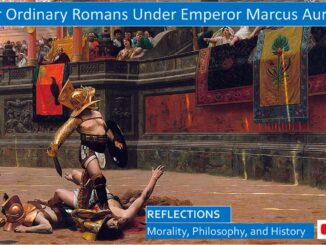
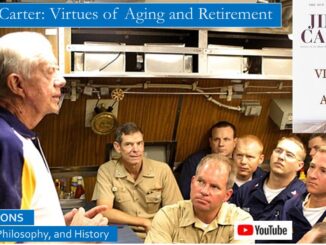
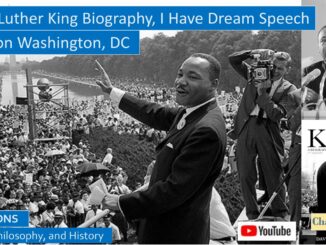
2 Trackbacks / Pingbacks